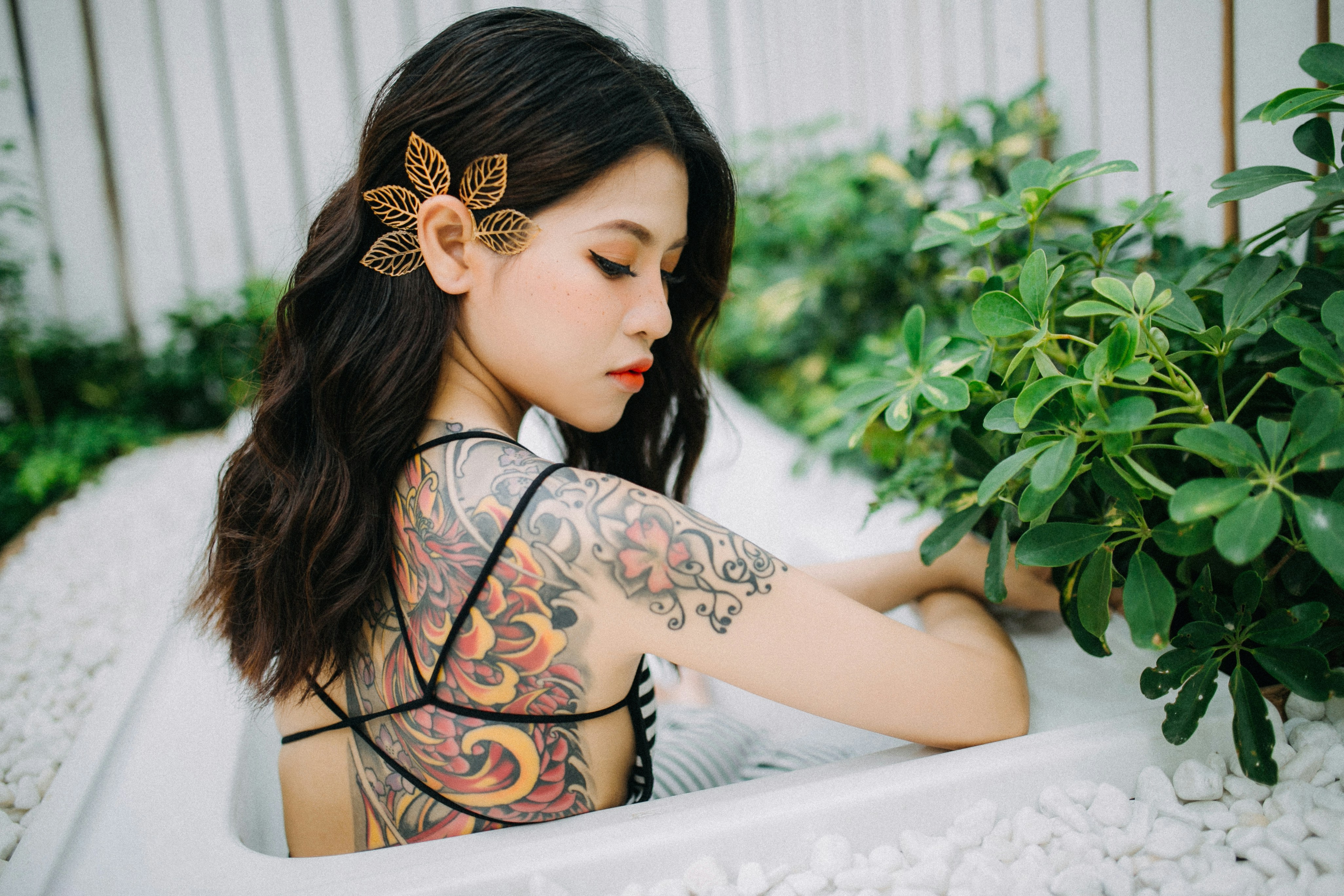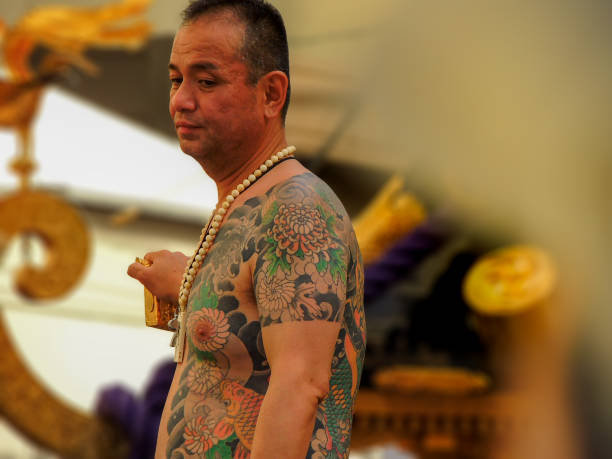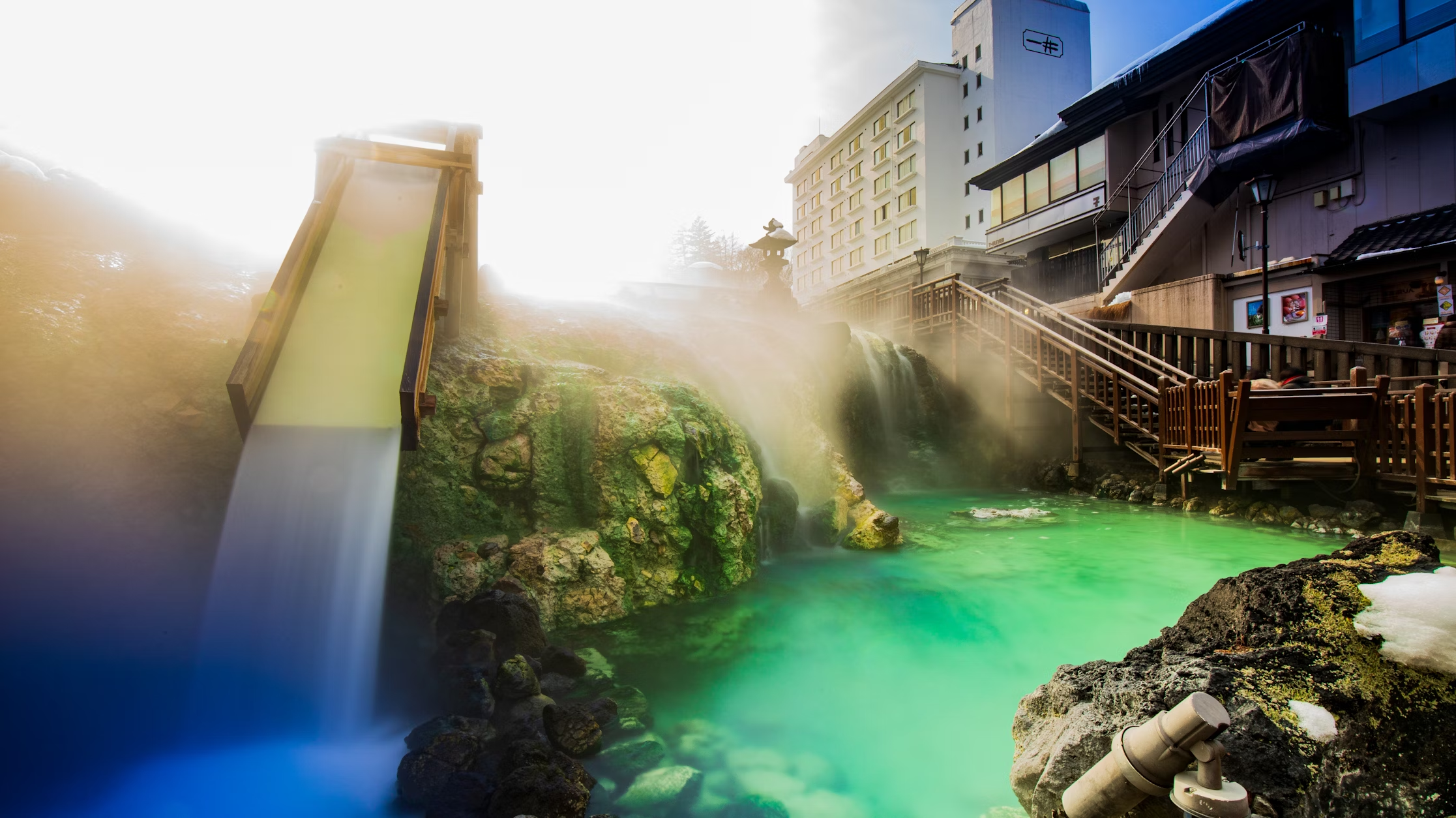
Tattoos in Japan: The Complete Guide to Culture, Acceptance, and Where You Can Go
Japan presents a fascinating paradox when it comes to tattoos. Home to one of the world's most celebrated tattoo traditions—irezumi—yet maintaining some of the strictest social taboos against body art. If you're planning to visit Japan with tattoos or considering getting inked by a Japanese master, this comprehensive guide will help you navigate the complex cultural landscape.
Table of Contents
-
1. The Historical Context: Why Tattoos Are Controversial
- The Yakuza Connection
-
2. Onsen and Public Baths: The Big Challenge
- Why the Ban Exists
- Tattoo-Friendly Options
- Cover-Up Solutions
-
3. Public Pools and Beaches: What You Need to Know
- Swimming Pools vs Beaches
- Gyms and Fitness Centers
-
4. Urban vs Rural: A Tale of Two Japans
- Metropolitan Areas
- Rural Japan
- Regional Cities
-
5. Generational Divide: How Age Affects Acceptance
- Gen Z and Millennials
- Generation X
- Baby Boomers and Older
-
6. Famous Japanese Tattoo Artists Leading the Change
- Horiyoshi III - The Living Legend
- Shige - The Innovator
- Horitomo - The Cultural Ambassador
- And more...
-
7. Practical Tips for Tattooed Visitors
- What's Generally OK
- What Requires Caution
- Smart Strategies
-
8. The Future of Tattoo Acceptance in Japan
- Positive Trends
- What to Expect by 2030
The Historical Context: Why Tattoos Are Controversial
To understand modern Japan's relationship with tattoos, we need to look back at history. During the Edo period (1603-1868), tattoos were used to mark criminals—a practice called "irezumi kei" (tattoo punishment). This association with criminality was reinforced in the 20th century through the yakuza's adoption of elaborate full-body tattoos.
However, Japan also has a rich tradition of decorative tattooing that dates back thousands of years. The indigenous Ainu people practiced tattoos as spiritual protection, and Japanese firefighters in the Edo period wore tattoos as a form of spiritual armor.
The Yakuza Connection
The yakuza's relationship with tattoos has profoundly shaped public perception. Their elaborate "suits" covering the entire body except for a central strip down the front (allowing them to wear open shirts without revealing tattoos) became synonymous with organized crime. This association remains strong in the public consciousness, particularly among older generations.
 Traditional Japanese irezumi featuring classic motifs like cherry blossoms and Japanese imagery
Traditional Japanese irezumi featuring classic motifs like cherry blossoms and Japanese imagery
The yakuza's adoption of traditional Japanese tattoo art, known as irezumi, created a cultural paradox. While the artistry itself represents centuries of Japanese cultural tradition, its association with organized crime led to widespread social stigma that persists today.
Onsen and Public Baths: The Big Challenge
The most significant challenge for tattooed visitors to Japan is accessing onsen (hot springs) and sento (public baths). An estimated 60% of onsen facilities ban customers with tattoos, regardless of size or design.
 Traditional Japanese onsen overlooking the ocean - many facilities still maintain no-tattoo policies
Traditional Japanese onsen overlooking the ocean - many facilities still maintain no-tattoo policies
Why the Ban Exists
- Historical associations with criminality and yakuza
- Maintaining a "family-friendly" atmosphere
- Avoiding potential confrontations between customers
- Insurance and liability concerns
Tattoo-Friendly Onsen Options
Despite the restrictions, there are increasingly more options for tattooed visitors:
Tokyo Area
- Jakotsu-yu (Asakusa) - A historic sento that welcomes tattooed guests
- Niwa no Yu (Toshimaen) - Explicitly tattoo-friendly
- Thermae-Yu (Kabukicho) - 24-hour spa complex that allows tattoos
Osaka/Kyoto
- Funaoka Onsen (Kyoto) - Historic bathhouse accepting tattoos
- Spa World (Osaka) - International spa theme park, tattoo-friendly
Private Onsen (Kashikiri-buro)
Many ryokan (traditional inns) offer private onsen that can be reserved by the hour. These include:
- Takaragawa Onsen (Gunma) - Famous for its mixed-gender outdoor baths
- Nishimuraya Hotel Shogetsutei (Kinosaki) - Luxury ryokan with private baths
- Gora Kadan (Hakone) - High-end resort with private onsen options
Cover-Up Solutions
Some facilities allow small tattoos if covered with:
- Waterproof bandages (sold at pharmacies as "tattoo cover seals")
- Rash guards (for outdoor onsen)
- Foundation makeup (for very small tattoos)
Public Pools and Beaches: What You Need to Know
Public pools in Japan typically maintain strict no-tattoo policies, often more stringent than onsen. However, beaches are generally more relaxed.
Swimming Pools
- Municipal pools: Usually ban all visible tattoos
- Hotel pools: Policies vary; international hotels tend to be more accepting
- Water parks: Major parks like Tokyo Summerland prohibit tattoos
Beaches
Good news for beach lovers: most Japanese beaches don't restrict tattoos. Popular tattoo-friendly beaches include:
- Shonan Beach (near Tokyo)
- Shirahama Beach (Wakayama)
- Okinawa beaches (generally very tattoo-friendly)
Gyms and Fitness Centers
- International chains (Gold's Gym, Anytime Fitness): Generally tattoo-friendly
- Local gyms: Often require tattoos to be covered
- Municipal facilities: Usually prohibit visible tattoos
Urban vs Rural: A Tale of Two Japans
The acceptance of tattoos varies dramatically between urban and rural areas.
Metropolitan Areas: Tokyo, Osaka, Kyoto
Urban Japan, particularly Tokyo's trendy neighborhoods like Shibuya, Harajuku, and Shimokitazawa, has become increasingly accepting of tattoos. You'll see:
- Young professionals with visible tattoos
- Fashion-forward individuals sporting body art
- International atmosphere in business districts
- Tattoo studios operating openly
Acceptance Level: High in international areas, moderate in general public spaces
Rural Japan
Rural areas maintain more traditional views:
- Stronger negative associations with tattoos
- Less exposure to international visitors
- Older demographic with conservative values
- Limited tattoo-friendly facilities
Acceptance Level: Low to very low
The Middle Ground: Regional Cities
Cities like Nagoya, Sendai, and Hiroshima fall between the extremes:
- Growing acceptance among younger residents
- Tourism infrastructure increasingly accommodating
- Mixed reactions depending on the district
Generational Divide: How Age Affects Acceptance
Generation Z and Millennials (Under 40)
Japan's younger generations show dramatically different attitudes toward tattoos:
- 58% view tattoos positively or neutrally (2023 survey)
- Influenced by international culture, social media, and celebrities
- Many have tattoos themselves or friends with tattoos
- See tattoos as fashion and self-expression
Generation X (40-55)
The middle generation shows mixed views:
- More accepting than older generations but still cautious
- Professional concerns about workplace acceptance
- Differentiate between "fashion tattoos" and "yakuza-style"
Baby Boomers and Older (55+)
Older Japanese maintain the strongest opposition:
- 70% view tattoos negatively (2023 survey)
- Strong association with criminality and antisocial behavior
- Concerns about "corrupting" younger generations
- Support maintaining traditional restrictions
Famous Japanese Tattoo Artists Leading the Change
Japan's tattoo scene is experiencing a renaissance, led by world-renowned artists who are changing perceptions both domestically and internationally.
1. Horiyoshi III (Yokohama) - The Living Legend
Profile:
- Real name: Yoshihito Nakano
- Specialty: Traditional full-body suits (horimono)
- Location: Yokohama (by appointment only)
- Career: Over 50 years of tattooing experience
What Makes Him Special: Horiyoshi III is arguably the most famous Japanese tattoo artist alive today. He specializes in traditional tebori (hand-poked) techniques that have been passed down through generations. His clients include international celebrities, collectors, and enthusiasts who travel from around the world for his work. He's also a published author and has documented the history and techniques of Japanese tattooing.
Philosophy: "Tattoos are not about intimidation but about beauty and personal story. Each piece should tell the wearer's journey." - Horiyoshi III
2. Shige (Yokohama) - The Innovator
Profile:
- Real name: Shigenori Iwasaki
- Specialty: Japanese bio-mechanical fusion
- Studio: Yellow Blaze Tattoo
- Awards: Multiple international tattoo convention awards
What Makes Him Special: Shige revolutionized Japanese tattooing by creating a unique bio-mechanical style that blends traditional Japanese motifs with futuristic, mechanical elements. His innovative approach has influenced a new generation of artists worldwide. His work features incredible depth, dimension, and detail that seems to come alive on the skin.
Notable Achievements: His pieces regularly win "Best of Show" at international conventions, and he's been featured in every major tattoo publication globally.
3. Horitomo (San Jose/Tokyo) - The Cultural Ambassador
Profile:
- Studio: State of Grace (San Jose) / Guest spots in Tokyo
- Specialty: Traditional Japanese with modern twists
- Famous for: "Monmon Cats" series
What Makes Him Special: Horitomo bridges Eastern and Western tattoo cultures like no other artist. His "Monmon Cats" - adorable cats covered in traditional Japanese tattoos - have become a cultural phenomenon, making Japanese tattooing more accessible and appealing to a broader audience. He regularly travels between California and Tokyo, bringing American and Japanese tattoo communities together.
Cultural Impact: His work has been exhibited in art galleries and has helped change perceptions of tattoos from subculture to fine art.
4. Gakkin (Kyoto/Amsterdam) - The Modern Master
Profile:
- Studios: Authentic Tattoo (Kyoto) / Guest spots in Amsterdam
- Specialty: Contemporary Japanese style
- Clientele: International collectors and celebrities
What Makes Him Special: Gakkin represents the perfect balance between respecting tradition and pushing boundaries. His bold, graphic interpretations of classic Japanese motifs use vibrant colors and strong black work that photographs beautifully in the social media age. He's known for large-scale pieces that flow perfectly with the body's anatomy.
Artistic Approach: He treats each tattoo as a piece of wearable art, considering how it will age and how it interacts with the wearer's movement.
5. Horikitsune (Tokyo) - The Female Pioneer
Profile:
- Location: Tokyo
- Specialty: Feminine interpretations of traditional Japanese designs
- Mission: Promoting women in the tattoo industry
What Makes Her Special: In a male-dominated field, especially in traditional Japanese tattooing, Horikitsune has broken barriers and challenged stereotypes. She's one of the few female artists specializing in large-scale Japanese work, bringing a unique perspective to traditional motifs. Her work often features softer color palettes and more delicate line work while maintaining the power of traditional Japanese imagery.
Social Impact: She actively mentors young female artists and advocates for greater female representation in Japanese tattooing, helping to modernize the industry's culture.
6. Nissaco (Tokyo/Osaka) - The Neo-Traditional Artist
Profile:
- Studios: Tokyo and Osaka locations
- Specialty: Ukiyo-e inspired contemporary tattoos
- Social Media: Over 100k followers on Instagram
What Makes Them Special: Nissaco has become the go-to artist for younger Japanese clients who want tattoos that honor tradition while feeling contemporary. Their work draws heavily from ukiyo-e (woodblock prints) but with a modern color palette and composition style that appeals to fashion-conscious clients. They're also one of the most visible Japanese tattoo artists on social media, helping normalize tattoo culture among younger generations.
Cultural Influence: Regular collaborations with fashion brands and features in mainstream Japanese magazines have helped bring tattooing into the mainstream conversation.
Practical Tips for Tattooed Visitors
What's Generally OK
- Restaurants and cafes - Rarely any issues
- Shopping - No restrictions in stores
- Tourist attractions - Temples, shrines, museums all OK
- Public transportation - No problems on trains or buses
- Hotels - Most accept tattooed guests (onsen may be restricted)
- Bars and nightlife - Generally very accepting
What Requires Caution
- Onsen and sento - Check policies in advance
- Public pools - Usually prohibited
- Gyms - Varies by facility
- Some ryokan - Traditional inns may have restrictions
- Capsule hotels - Shared bath facilities may ban tattoos
Smart Strategies
- Research in advance - Check facility websites or call ahead
- Book private options - Private onsen, rooms with baths
- Carry cover-ups - Long sleeves, waterproof bandages
- Learn key phrases:
- "Irezumi wa daijoubu desu ka?" (Are tattoos okay?)
- "Chiisai irezumi demo dame desu ka?" (Even small tattoos aren't allowed?)
- Use apps - Tattoo-friendly facility finder apps like "Tattoo Friendly"
Regional Recommendations
Most Tattoo-Friendly Destinations
- Okinawa - Relaxed island culture, many beaches
- Tokyo (Shibuya, Shinjuku, Roppongi) - International atmosphere
- Osaka - Friendly, open-minded culture
- Kyoto (city center) - Tourist-oriented facilities
Proceed with Caution
- Rural Kyushu - Conservative attitudes
- Small towns in Tohoku - Limited tattoo-friendly options
- Traditional resort towns - Strict onsen culture
The Future of Tattoo Acceptance in Japan
Positive Trends
Japan is slowly but steadily becoming more tattoo-friendly:
- 2020 Olympics Effect - Many facilities relaxed rules for international visitors
- Tourism growth - Economic incentive to accommodate tattooed tourists
- Younger generation - Shifting attitudes toward body art
- Celebrity influence - Japanese celebrities openly showing tattoos
- Legal recognition - 2020 Supreme Court ruling that tattooing is not a medical procedure
Ongoing Challenges
- Deeply rooted cultural associations
- Elderly population maintaining traditional views
- Corporate culture still largely conservative
- Yakuza stigma remains strong
What to Expect by 2030
Experts predict:
- 50% more tattoo-friendly onsen than 2020
- Workplace acceptance in creative industries
- Normalized in major urban areas
- Regional variations will persist
Conclusion: Navigating Tattooed Life in Japan
Japan's relationship with tattoos is complex and evolving. While challenges remain—particularly with onsen and public facilities—the country is becoming increasingly welcoming to tattooed visitors and residents. Urban areas like Tokyo and Osaka offer numerous tattoo-friendly options, and the younger generation is driving cultural change.
For visitors, preparation is key. Research facilities in advance, have backup plans, and approach situations with cultural sensitivity. Remember that restrictions aren't personal—they reflect centuries of cultural conditioning that's slowly but surely changing.
The work of pioneering artists like Horiyoshi III, Shige, and others is not just preserving Japan's incredible tattoo heritage but also modernizing perceptions for future generations. As Japan continues to internationalize and younger generations assume leadership roles, the future looks increasingly bright for tattoo acceptance in the Land of the Rising Sun.
Useful Resources
- Tattoo-Friendly Japan - Website and app for finding tattoo-friendly facilities
- Japan National Tourism Organization - Official tourism information
- Ink Finder - Directory of Japanese tattoo artists and studios
- Tokyo Weekender - English magazine with tattoo-friendly venue listings
Have experiences with tattoos in Japan? Share your story in the comments below or connect with us on social media @inkfinderjapan